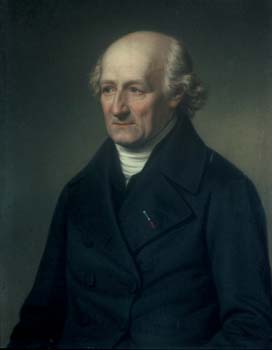|
Norbert Poehlke
Norbert Hans Poehlke (15 September 1951 – 22 October 1985), The Hammer-Killer (''Der Hammermörder''), was a German police officer (1971–1985) and serial killer who after he committed suicide in 1985 was found to have committed several bank robberies and related murders. He was tagged as the "Hammer-Killer" for his ''modus operandi'' of killing drivers of cars and using a sledgehammer in later bank robberies in which he would use his victims' cars as getaway vehicles. Early life Poehlke was a police officer in Baden-Württemberg, employed from 1982 as a high-ranking sergeant of Mühlhausen am Neckar's canine division. After winning 36,000 Deutsche Mark from the lottery, he built a house for his family (consisting of his wife, two sons and a daughter) in the village of Strümpfelbach in Backnang, where he took care of the finances. After the construction of the family home, the family became heavily indebted. In March 1984, his daughter Cordula died from a brain tumor at ... [...More Info...] [...Related Items...] OR: [Wikipedia] [Google] [Baidu] |
Stuttgart
Stuttgart (; Swabian: ; ) is the capital and largest city of the German state of Baden-Württemberg. It is located on the Neckar river in a fertile valley known as the ''Stuttgarter Kessel'' (Stuttgart Cauldron) and lies an hour from the Swabian Jura and the Black Forest. Stuttgart has a population of 635,911, making it the sixth largest city in Germany. 2.8 million people live in the city's administrative region and 5.3 million people in its metropolitan area, making it the fourth largest metropolitan area in Germany. The city and metropolitan area are consistently ranked among the top 20 European metropolitan areas by GDP; Mercer listed Stuttgart as 21st on its 2015 list of cities by quality of living; innovation agency 2thinknow ranked the city 24th globally out of 442 cities in its Innovation Cities Index; and the Globalization and World Cities Research Network ranked the city as a Beta-status global city in their 2020 survey. Stuttgart was one of the host cities ... [...More Info...] [...Related Items...] OR: [Wikipedia] [Google] [Baidu] |
Ludwigsburg
Ludwigsburg (; Swabian: ''Ludisburg'') is a city in Baden-Württemberg, Germany, about north of Stuttgart city centre, near the river Neckar. It is the largest and primary city of the Ludwigsburg district with about 88,000 inhabitants. It is situated within the '' Stuttgart Region'', and the district is part of the administrative region (''Regierungsbezirk'') of Stuttgart. History The middle of Neckarland, where Ludwigsburg lies, was settled in the Stone and Bronze Ages. Numerous archaeological sites from the Hallstatt period remain in the city and surrounding area. Towards the end of the 1st century, the area was occupied by the Romans. They pushed the Limes further to the east around 150 and controlled the region until 260, when the Alamanni occupied the Neckarland. Evidence of the Alamanni settlement can be found in grave sites in the city today. The origins of Ludwigsburg date from the beginning of the 18th century (1718–1723) when the largest baroque castle i ... [...More Info...] [...Related Items...] OR: [Wikipedia] [Google] [Baidu] |
Chief Superintendent
Chief superintendent is a senior rank in police forces, especially in those organised on the United Kingdom, British model. Rank insignia of chief superintendent File:Sa-police-chief-superintendent.png, South Australia Police File:RCMP Chief Superintendent.png, Royal Canadian Mounted Police File:Distintivo Superintendente-Chefe PSP.png, Polícia de Segurança Pública, Portuguese Public Security Police File:Chief Superintendant Epaulette.svg, UK police chief superintendent epaulette Chief superintendent by country Australia In Australia, a chief superintendent is senior to the rank of Superintendent (police), superintendent in all the Australian police forces excepting the Western Australia Police. It is junior to the rank of commander (Victoria Police, South Australia Police) and the rank of Assistant commissioner (police), assistant commissioner (New South Wales Police, Queensland Police). Officers wear the insignia of a crown over two Bath stars (or in the case of the New ... [...More Info...] [...Related Items...] OR: [Wikipedia] [Google] [Baidu] |
Anti-terrorist
Counterterrorism (also spelled counter-terrorism), also known as anti-terrorism, incorporates the practices, military tactics, techniques, and strategies that governments, law enforcement, business, and intelligence agencies use to combat or eliminate terrorism. Counterterrorism strategies are a government's motivation to use the instruments of national power to defeat terrorists, the organizations they maintain, and the networks they contain. If definitions of terrorism are part of a broader insurgency, counterterrorism may employ counterinsurgency measures. The United States Armed Forces uses the term foreign internal defense for programs that support other countries' attempts to suppress insurgency, lawlessness, or subversion, or to reduce the conditions under which threats to national security may develop. History The first counter-terrorism body formed was the Special Irish Branch of the Metropolitan Police, later renamed the Special Branch after it expanded its scope b ... [...More Info...] [...Related Items...] OR: [Wikipedia] [Google] [Baidu] |
Aktenzeichen XY… Ungelöst
''Aktenzeichen XY... ungelöst'' ("Case number XY... unsolved") is a German interactive television programme first broadcast on 20 October 1967 on ZDF. Created by Eduard Zimmermann, it aims to combat and solve crimes. The programme is currently presented by Rudi Cerne. It airs monthly, with 12 episodes in a year, on Wednesday at 8:15 PM. From March 1968 until December 2002, it was produced in cooperation with the Austrian public service broadcaster ORF and Schweizer Fernsehen, a division of the Swiss public broadcaster SRG SSR, who joined in January 1969 and left in December 2003. The programme was adapted by the BBC as ''Crimewatch'' and for the US market as ''America's Most Wanted''. Other adaptations of the format were aired in a number of countries including Ireland, Israel, Italy, Netherlands, New Zealand, Poland and Sweden. Format The goal of the programme is to cast light on unsolved offences with the aid of viewers. Each episode contains three to five short films, each ... [...More Info...] [...Related Items...] OR: [Wikipedia] [Google] [Baidu] |
Spiegelberg
Spiegelberg is a municipality in the Rems-Murr district of Baden-Württemberg, Germany. History Spiegelberg's name comes from a glassworking manufactory built in the town in 1699 that produced mirrors from 1705 to 1794. Geography The municipality (''Gemeinde'') of Spiegelberg is located at the northern edge of the Rems-Murr district of Baden-Württemberg, along its border with the district of Heilbronn. Spiegelberg is situated in the valley of the Lauter and within the Swabian-Franconian Forest. Elevation above sea level in the municipal area ranges from a high of Normalnull (NN) to a low of NN. A portion of the Federally protected nature reserve is located in Spiegelberg's municipal area. Politics Spiegelberg has three boroughs (''Ortsteile'') – Jux, Nassach, and Spiegelberg – and ten villages: Dauernberg, Eisenlautern, Gieshof, Großhöchberg, Hüttlen, Kurzach, Neuhöchberg, Obere Roßstaig, Roßsteig, and Vorderbüchelberg. The industrial district of Roßstaig and ... [...More Info...] [...Related Items...] OR: [Wikipedia] [Google] [Baidu] |
Beilstein, Württemberg
Beilstein () is a town in the district of Heilbronn in Baden-Württemberg in southern Germany. It is southeast of Heilbronn. Beilstein is on the Württemberg wine route (''Württemberger Weinstraße''). Geography Beilstein lies in the south of the district of Heilbronn. The town is crossed by the Söhlbach, a tributary of the Bottwar. The communal land of Beilstein includes big parts of the Löwenstein Mountains. Annasee Lake is nearby. Neighbouring municipalities Neighbouring towns and municipalities of Beilstein are (clockwise from the south): Oberstenfeld, Großbottwar (both in the district of Ludwigsburg), Ilsfeld, Abstatt, Lauffen am Neckar (exclave Etzlenswenden), Löwenstein (all in the district of Heilbronn) and Spiegelberg (Rems-Murr-Kreis). The village Farnersberg is an exclave between Untergruppenbach in the north and Lauffen's exclave ''Stadtwald Etzlenswenden'' in the south. Beilstein has combined with Abstatt, Ilsfeld and Untergruppenbach to form a joint ... [...More Info...] [...Related Items...] OR: [Wikipedia] [Google] [Baidu] |
Cleebronn
Cleebronn () is a municipality in the district of Heilbronn in Baden-Württemberg in southern Germany. Geography Cleebronn is in the Zabergäu in the south of the district of Heilbronn, directly in the north of the Stromberg mountain with an elevation of . The landscape is characterised by wine-growing. The symbol of the municipality and the whole Zabergäu is the Michaelsberg, which has an elevation of . Neighbouring municipalities Neighbouring towns of Cleebronn are (clockwise from the west): Güglingen, Brackenheim (both in the district of Heilbronn), Bönnigheim and Sachsenheim (both in the district of Ludwigsburg). Cleebronn has combined with Brackenheim to form a joint association. Municipal structure Cleebronn includes the villages of Treffentrill and Katharinenplaisir. History The first documented mention of Cleebronn was in 1279 as ''Kleberen''. In the 13th century there were some possessions of the Principality of Mainz around the Michaelsberg being rented to ... [...More Info...] [...Related Items...] OR: [Wikipedia] [Google] [Baidu] |
Nuremberg
Nuremberg ( ; german: link=no, Nürnberg ; in the local East Franconian dialect: ''Nämberch'' ) is the second-largest city of the German state of Bavaria after its capital Munich, and its 518,370 (2019) inhabitants make it the 14th-largest city in Germany. On the Pegnitz River (from its confluence with the Rednitz in Fürth onwards: Regnitz, a tributary of the River Main) and the Rhine–Main–Danube Canal, it lies in the Bavarian administrative region of Middle Franconia, and is the largest city and the unofficial capital of Franconia. Nuremberg forms with the neighbouring cities of Fürth, Erlangen and Schwabach a continuous conurbation with a total population of 800,376 (2019), which is the heart of the urban area region with around 1.4 million inhabitants, while the larger Nuremberg Metropolitan Region has approximately 3.6 million inhabitants. The city lies about north of Munich. It is the largest city in the East Franconian dialect area (colloquially: "F ... [...More Info...] [...Related Items...] OR: [Wikipedia] [Google] [Baidu] |
Expatriate
An expatriate (often shortened to expat) is a person who resides outside their native country. In common usage, the term often refers to educated professionals, skilled workers, or artists taking positions outside their home country, either independently or sent abroad by their employers. However, the term 'expatriate' is also used for retirees and others who have chosen to live outside their native country. Historically, it has also referred to exiles. Expatriates are immigrants or emigrants who maintain cultural ties such as the language of their country of origin. Etymology The word ''expatriate'' comes from the Latin terms '' ex'' ("out of") and ''patria'' ("native country, fatherland"). Semantics Dictionary definitions for the current meaning of the word include: :Expatriate: :* 'A person who lives outside their native country' (Oxford), or :* 'living in a foreign land' (Webster's). These definitions contrast with those of other words with a similar meaning, such a ... [...More Info...] [...Related Items...] OR: [Wikipedia] [Google] [Baidu] |






